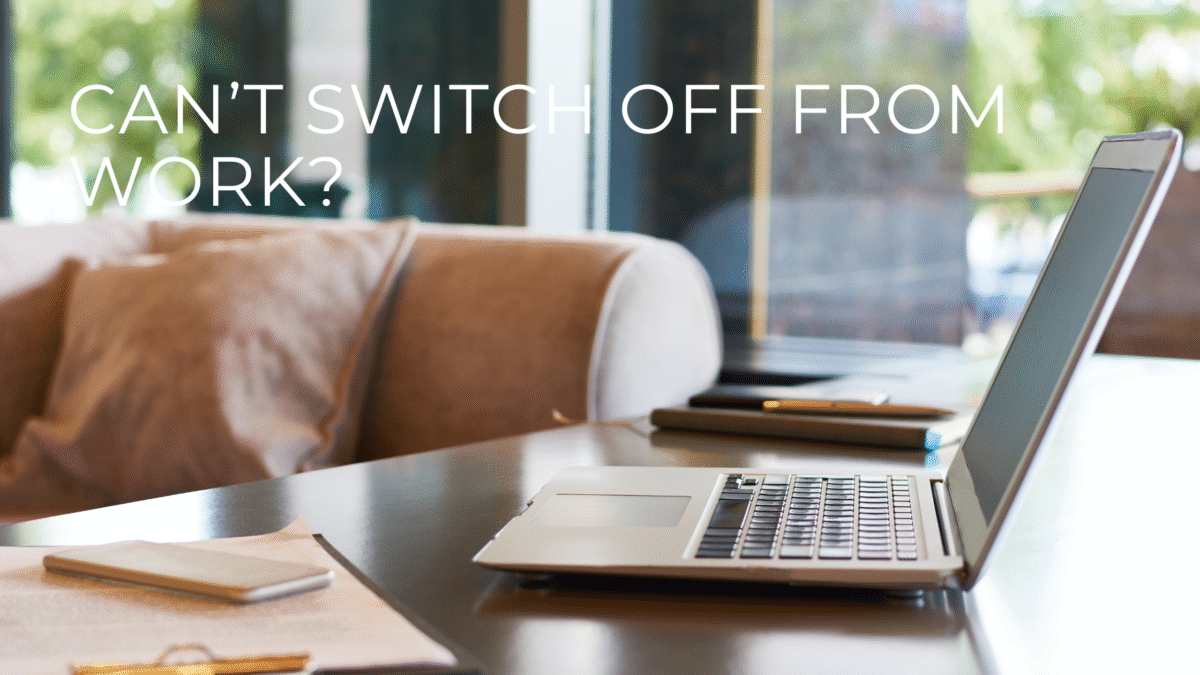In today’s world, switching off from work has become harder than ever. The lines between professional and personal life have blurred, largely due to the rise of technology, remote working, and the expectation of constant availability. Many of us find ourselves checking emails late at night, answering messages during dinner, or mentally replaying the day’s tasks long after logging off.
This inability to truly disconnect isn’t just a nuisance, it can lead to burnout, stress, and reduced productivity. Understanding why it happens is the first step to changing it.
1. The Blurred Line Between Work and Home
Remote and hybrid working have brought undeniable benefits: flexibility, autonomy, and a better work-life balance, at least in theory. But without the physical separation of an office, many people find it increasingly difficult to switch off.
Your home, once a place for rest and family, now doubles as your workspace. The kitchen table becomes the meeting room; the sofa turns into your office chair. When your environment doesn’t change, your brain struggles to recognise when work has ended.
Creating physical and mental boundaries is key. Try setting up a dedicated workspace, even if it’s just one corner of a room, and commit to “closing” it at a certain time each day. A simple routine, like shutting down your computer and taking a short walk, can help signal the end of the working day and reset your focus.
2. The Pressure of Constant Availability
Modern work culture often celebrates busyness. There’s an unspoken belief that being responsive and “always on” equals being committed and successful. But this mindset can be exhausting.
The expectation to reply instantly to emails or messages, even outside working hours, blurs the boundaries that protect your downtime. The result? You never truly switch off, your mind remains half at work, half at home.
Establishing communication boundaries is essential. Turn off work notifications after hours, schedule “focus time” in your diary, and set clear expectations with clients or colleagues about when you’re available. It’s not about working less, it’s about working smarter. When you give yourself permission to rest, you return with more clarity, creativity, and motivation.
3. The Mental Load of Self-Employment
For business owners and freelancers, switching off can feel almost impossible. When your income depends on your effort, it’s hard to put work down, there’s always another email to send, another task to complete, or another idea to pursue.
But overworking doesn’t lead to better results; it often leads to fatigue and mistakes. Learning to delegate can make a huge difference. Outsourcing time-consuming admin tasks, emails, or bookkeeping to a trusted Virtual Assistant, for example, can help lighten your workload and give you space to breathe.
You don’t have to do it all. By allowing others to handle the details, you can focus on what you do best, and finally give yourself permission to switch off, guilt-free.
Get support for you and your business!
If you feel you’ve reached the point where you can no longer manage everything yourself, let’s chat about what you are struggling with and which tasks you could send my way.
Drop me an email at lauren@swannva.co.uk and we can discuss how I can help you!
You can connect with me on Linkedin or Insta – please send me a DM to say hello!


